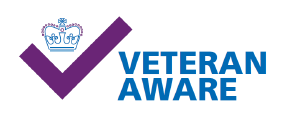Job summary
- Main area
- Physiotherapy/Occupational Therapist
- Grade
- NHS AfC: Band 7
- Contract
- Permanent
- Hours
- Full time
- Part time
- Flexible working
- Job ref
- 302-24-6392413CM
- Employer
- Wrightington, Wigan and Leigh Teaching Hospitals NHS Foundation Trust
- Employer type
- NHS
- Site
- Royal Albert Edward Infirmary
- Town
- Wigan
- Salary
- £43,742 - £50,056 pa
- Salary period
- Yearly
- Closing
- 09/07/2024 23:59
Employer heading

Highly Specialist Physio/Occupational Therapist (Frailty SDEC/CAU)
NHS AfC: Band 7
Choose Well - Choose WWL
Job overview
The aim of our Frailty SDEC is to reduce the number of acute presentations and enhance the provision of health and social care to a the frail elderly providing care closer to home in the community between the tier of Emergency Department (ED) and Primary Care.
We are looking for a Highly Specialist OT/Physio to lead therapy within the unit and the care delivery in keeping with the Frailty model, including but not limited to: complete Functional, Social and Environmental Aspects of the Comprehensive Geriatric Assessment and link in with Community Services as appropriate.
It supports individuals to achieve specific goals which enable safe discharge back into the community or their own home.
The post offers exciting opportunities to focus on the care of our Frail population of adults, provide hands on care, lead on the development of the unit and to provide professional clinical leadership to the unit.
You must be able to travel independently across the Trust.
This is a permanent full time (37.5 hours) post working across Monday to Sunday (including bank holidays). Part time may be considered.
An Enhanced DBS with Adults' Barred List checks will be obtained during pre-employment checks.
Main duties of the job
- To act as a highly specialist therapist to support individuals who are medically well enough to be discharged from hospital, but need an holistic approach for a safe MDT led discharge.
- To be a source of expertise and undertake a significant clinical caseload to a high professional standard using specialist knowledge from theoretical and practical experience
- To further use this highly specialist skill level to monitor and improve standards of care and practise by efficient use of resources and utilising clinical audit within intermediate care.
- Proactively and positively contribute to the achievement of patient care through individual and interdisciplinary team effort. To monitor and improve standards in the delivery of evidence based and client centred care within the Unit.
- To provide leadership as a senior therapist in , assessing and treating a caseload of complex patients in a variety of settings including patients own homes, wide variety of community settings including residential and nursing homes.
- To take the lead in teaching, training and supervision of clinicians within their IDT working.
- To be confident in co coordinating the unit as a shift lead of all staff members.
- Lead an MDT team
Working for our organisation
Choose Well – Choose WWL
Wrightington, Wigan and Leigh NHS Foundation Trust are the proud providers of acute hospital and community services to the people of the Wigan Borough and surrounding areas. At WWL, we value our staff believing that ‘happy staff, makes for happy patients’. We have a recognised track record in staff engagement and living our values ‘the WWL Way’.
WWL are committed to placing the patient at the heart of everything we do, and in the provision of safe, effective care that acknowledges and ensures dignity. With this in mind we are seeking to recruit people who share our values and beliefs.
Detailed job description and main responsibilities
Duties and Responsibilities
• To be professionally and legally responsible and accountable for all aspects of your work including the management of patients in your care, working to agreed national and professional standards.
• To be recognised as a highly specialised practitioner. To undertake the comprehensive specialist assessment of patients, including those with complex presentations, chronic long-term conditions and rehabilitation needs using highly advanced analytical skills, clinical reasoning and the use of specialist assessment tools underpinned by theoretical knowledge and relevant practical experience.
• Maintain own clinical caseload to ensure continuing professional registration at a specialist level and support the interdisciplinary team working across the service.
• To be responsible for ensuring all who refer to the service, are aware of eligibility criteria. Maintain the profile of the unit in various forums, including Greater Manchester and Nationally.
• To effectively undertake the assessments of complex and highly complex patients, identify their problems and needs and ensure the patients’ medical, cognitive, psychological, social, spiritual, cultural and environmental factors are taken into account.
• Ensure patient transfer into and out of the service is smooth and effective, with full communication of all related information to patients, carers, families, other professionals and services as necessary, across all Health, Social Services and voluntary agencies. This may require providing & receiving highly complex, sensitive or contentious information; agreement & cooperation are required across the wide range of professionals, plus patient & their family. Cognitive & communication difficulties may be present.
• To utilise examination and assessment findings using highly specialist clinical reasoning skills to develop and implement treatment programs from a wide range of therapeutic options appropriate to each patient, using evidence-based practice and highly specialised knowledge.
• To set joint interdisciplinary treatment goals in negotiation with the patient, and/or carer wherever possible taking into account risk, safety, patient choice, independence and palliative care choice.
Planning and Organisational Duties
• Ensure regular review of the caseload within a patient centred interdisciplinary goal setting model, and make decisions regarding team capacity in consideration of patient complexity and identified risk.
• To take responsibility for devising highly specialised treatment programs for other interdisciplinary team members to carry out and ensure they are carried out appropriately.
• Act as a role model in the promotion of interdisciplinary team working, and challenge non-interdisciplinary team working practice, so that an interdisciplinary team working culture is maintained.
• Keep up-dated with relevant clinical developments and best practice within the national and local forum. Ensure clinical developments are implemented and evaluated in line with best practice.
• Ensure the team works closely to all local and national guidelines and any relevant new publications. Be a fully active participant in the development, implementation & review of local Guidelines.
• To provide highly specialised advice to others regarding the management and care of patients reablement needs (others include: relatives/ carers, health care workers in the community, liaison within the Integrated care services, and carers and professionals in the statutory and voluntary sectors)
• Practice, role model and promote safe and effective moving, handling and positioning skills as laid down in training sessions, to ensure the safety of patients and colleagues.
• To provide clinical support for peers and junior staff and participate in the competency training and development frameworks.
• To be able to relate assessment results to the presenting disease / pathology / impairment.
• To promote health and well-being and raise awareness of physical impairments via health promotion initiatives.
• To ensure informed consent can be gained and all opportunities for gaining consent within the interdisciplinary team are explored to ensure patients and relatives are fully aware of the aims and objectives of intervention.
• To produce, disseminate and update reports/guidelines/training regarding individual care plans to carers/patients and other professionals.
• To contribute to the triage of new patients, prioritisation and overview assessment of new patients referred to the service.
Communications and Key Working Relationships
• To demonstrate excellent interpersonal skills, taking an active role in meetings and developments as appropriate across acute and community to support effective in reach pathways.
• To employ excellent communication skills to enable patients, some of whom may have highly challenging communication impairments, to engage in the therapeutic process including the use of communication aids.
• To work autonomously as part of the interdisciplinary team to organise and attend patient related meetings e.g. case conferences, patient reviews, discharge planning meetings, goal setting discussions and review meetings by discussing own and others input around patients’ needs ensuring a well-coordinated care plan.
• To ensure a productive therapeutic relationship is established with patients, carers and families, agreeing decision-making which is relevant to the patient’s management, taking into account any communication impairment, psychological and emotional state and differing cultural attitudes and expectations.
• To demonstrate empathy with patients, carers, families and colleagues, ensuring that effective communication is achieved, particularly where barriers to understanding exist.
• To work with a link worker, signing interpreter or language interpreter as necessary to aid assessment and treatment of the patient and communication with the carer(s).
• To demonstrate skills in motivating patients and/or carers to engage in the therapeutic process.
• To continue to develop negotiation skills in the management of conflict across a range of situations.
• To deal with initial complaints sensitively, avoiding escalation where possible.
• To form productive relationships with relatives/carers and patients who may be under stress and/or may have challenging communication difficulties and/or who have other psychological/social/developmental barriers to developing relationships.
• To take an advocacy or facilitators role in helping patients and carers to express their needs, concerns and opinions to other professionals.
• Ensure incidents are managed appropriately highlighting any risks to service manager.
• To actively promote partnership working with interdisciplinary team and multiagency and social services partners.
• To generate initiatives to ensure that the reablement team contributes to the public and patient involvement process.
• Work with other stakeholders across GM to improve the delivery of intermediate care pathways.
Responsibility for Finance
• To be responsible for equipment used in carrying out duties.
• To adhere to departmental equipment policy, including competence to use equipment, to ensure safe use of equipment by others through teaching, training and supervision of practice.
• To be responsible for the loan and return of departmental equipment.
• To identify the need for and recommend the purchase for new items for the team, educational material for therapist and patient use or patient loan and discuss with service manager.
Responsibility for Human Resources
• To be responsible for working within locally agreed protocols and guidelines.
• To actively participate and comply with the annual PDP and appraisal system.
• Participate in the recruitment and retention of staff, in conjunction with service manager as necessary.
• Participate in receiving and delivering annual PDP and competency/ supervision frameworks.
• To plan and implement the induction of junior staff/students.
• To receive, plan and deliver in-service training for own profession and others.
• To undertake the supervision of junior staff as delegated by senior staff.
• To regularly supervise, evaluate and assess students to include negotiating learning contracts and setting objectives.
• To contribute to development of practice/procedures etc. within the Frailty SDEC
• To ensure annual retention on Health Professions Council Register to maintain state registration, taking responsibility for own continued professional development and document this evidence in a professional portfolio, showing proof of competence to practise within the NHS.
• To take responsibility for ensuring clinical supervision needs are met and personal development plans are undertaken.
Responsibility for Teaching
• To be responsible for providing fieldwork education placements and liaising with students/college.
• To promote the service to the wider community delivering awareness training to other health professionals as required.
• To take part in training/education of colleagues and staff/students of other disciplines.
Person specification
Qualifications
Essential criteria
- Registered Therapist with an active HCPC registration
- Evidence of CPD in the form of a detailed portfolio
Desirable criteria
- Leadership training
- Relevant post registration training/ Qualification in intermediate care
- Student mentorship
Experience
Essential criteria
- Evidence of wide clinical, theoretical knowledge base and specialist knowledge in assessment and management of patients
- Participation in departmental activities such as data recording, analysis and reporting and associated service planning
- Ability to work autonomously within specialist clinical area
- Experience of working in a team and independently
- Experience of service development, leadership and supervision skills
- Experience of liaison with other professionals and partnership working
- NHS experience
Desirable criteria
- Participation in developmental work/projects within a clinical field
- Case-management responsibilities.
- Experience in community rehabilitation
- Experience of Inter-disciplinary work
- Audit experience of own and others practice
Skills
Essential criteria
- Ability to manage highly complex caseload
- Must demonstrate excellent verbal and non-verbal communication with the ability to motivate people and empathise with the challenges of long-term condition management
- Able to communicate effectively with people of all ages and abilities
- Excellent communication skills, verbal, written and listening
- Ability to present information in a clear logical manner.
- Proven organisational skills including time management, effective delegation and prioritisation and task completion
- Presenting skills
Knowledge
Essential criteria
- Specialist knowledge in relevant clinical skills and approaches to patient management.
- Specialist knowledge and management of rehabilitation
- Knowledge of other chronic diseases and their management.
- Awareness of challenges of partnership and multi-agency working
- Ability to demonstrate a sound understanding of clinical governance and risk
- Knowledge of research/audit
- Teaching, supervisory and appraisal skills, and experience.
- Awareness of relevant national guidance
- Ability to comprehend and work within trust policies and procedures
- Ability to self-assess / reflect upon own performance.
- Basic understanding of computers
Desirable criteria
- Knowledge of implementing new policies and procedures
- Experience of data collection / audit to support an improved practice
Additional
Essential criteria
- Engagement with patients, families and carers who maybe distressed, depressed, aggressive. Ability to handle / de-escalate difficult situations
- Ability to manage caseload including clients with complex physical and psychological needs eg multiple pathologies, cognitive limitations.
- Advise on educational opportunities that will facilitate the development and support of specialist knowledge and skills in relation to the development of practice.
- Ability to work in an environment where there are frequent interruptions.
- Practise and promote safe moving, handling, and positioning skills
- Ability to use VDU for several short bursts throughout the day
- Speak English to an appropriate standard
- Able to travel independently across Trust
- Able to work flexibly in line with service demand
Applicant requirements
You must have appropriate UK professional registration.
This post is subject to the Rehabilitation of Offenders Act 1974 (Exceptions) Order 1975 (Amendment) (England and Wales) Order 2020 and it will be necessary for a submission for Disclosure to be made to the Disclosure and Barring Service.
Documents to download
Further details / informal visits contact
- Name
- Daniel Leverett
- Job title
- Team Lead
- Email address
- [email protected]
- Telephone number
- 01942 778581
List jobs with Wrightington, Wigan and Leigh Teaching Hospitals NHS Foundation Trust in Allied Health Professions or all sectors






